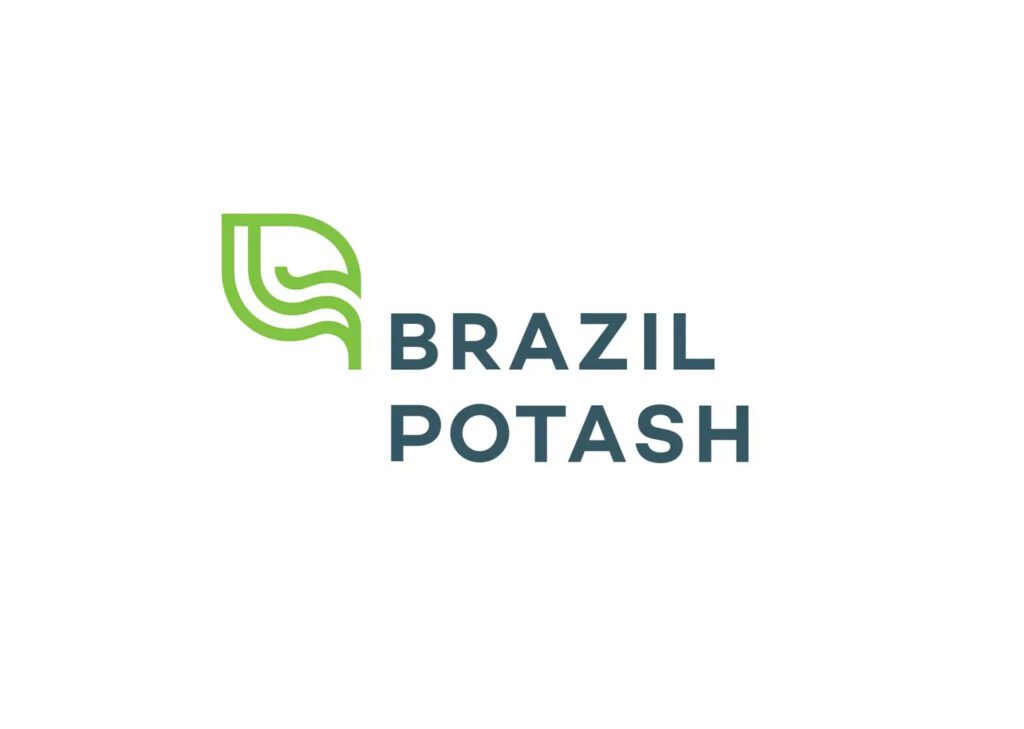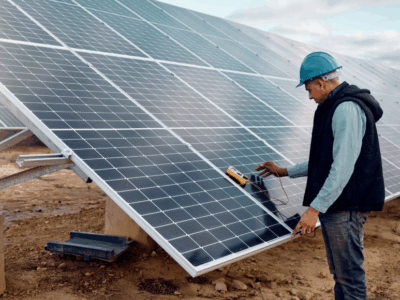The Russia-Ukraine war has caused multiple global supply chain disruptions. Mineral exports, including fertilizer for agriculture, have been hurt by sanctions and embargos. Russia is one of the biggest exporters of potash, a critical mineral used in fertilizers.
Brazil is one country that relied heavily on imported potash from Eastern Europe, but a Canadian mining firm has found a more sustainable alternative. Based in Toronto, Brazil Potash is helping the Brazilian people and government mine and refine a hefty domestic supply.
Since Brazil is a major agricultural nation — producing 38.5% of the world’s sugarcane and 81.3% of cashews, along with soybean, corn, and coffee — it uses millions of tons of the mineral. The country is its second-largest consumer, yet it relied on 95%-imported products. Brazil Potash CEO Matt Simpson believes that using the domestic supply is not only beneficial for farmers but also for the environment.

Photo Courtesy Brazil Potash
“There is one operating potash mine in Brazil. It started in 1985 and still runs today, owned by a company called Mosaic. But it has a very, very small production rate, only about half a million tons when Brazil consumes about 12 and half million tons,” Simpson explained to The Business Download. “It’s pretty amazing one of the largest potash ore bodies in the world is sitting right in Brazil’s backyard.”
Of course, with mining comes the question: how is it eco-friendly to extract it near the Amazon jungle? Brazil Potash does not plan to mine in the Amazon but in a grassland region.
The company outlined in its 2022 ESG Report that using Brazil’s potash will reduce carbon emissions by 1.06 million tons thanks to cutting out imports. To offset further emissions, the company has planted 20,000 trees.
In addition, Brazil Potash is committed to using clean energy for its mining operations. The Brazilian national electricity grid relies on renewables for power. Roughly 84% of the grid uses renewable energy — notably hydroelectricity — to power the country.
In remote areas near the rainforest, though, villages use diesel engines that create harmful emissions. Brazil Potash plans to connect them to renewable energy with a 165-kilometer (102 miles) transmission line.

Photo Courtesy Brazil Potash
“We’re going to build a transmission line that will connect our project to the national grid, but it’s also going to take about 200,000 people off of diesel-generated electricity and put them on that much cleaner, more reliable, lower-cost energy from the grid,” Simpson said.
He also mentioned that the company would incorporate electric mining vehicles into all underground operations and river barges to keep transportation emissions low. The plan is to direct potash to farms across Brazil.
The company will drill 2,400 feet into the Earth to harvest the minerals. The target start date is sometime in mid-2023. Two large shafts will be installed to send equipment and miners up and down. A hot water process will dissolve the ore, crystalizing it into potassium chloride for fertilizer.

Photo Courtesy Brazil Potash
According to Simpson, the Brazilian government — both the former and current administration — has been highly supportive of Brazil Potash’s efforts. “We’ve already had the vice president come out publicly talking about his support for our project,” he remarked. “He did that once with the governor of the Amazonas state, and he did another time with the mayor of Autazes, which is a city of about 35,000 people very close to where our ore body is.”
Brazil Potash plans to invest around $2.5 billion into this project. They received preliminary licenses from the Amazonas’ environmental authority, IPAAM. Funding came from the Brazil development bank BNDES and other international banks. Mining equipment is being sourced from Europe, North America, and China.
The company anticipates around 2.2 million metric tons of potash annually in the next four years, with plans to expand to 12.5 million tons.
The firm also anticipates producing more than 20% of the country’s annual consumption. This increase will provide more security to the world’s food supply while reducing emissions from transoceanic transportation.
Even though potash prices have started to normalize since the outbreak of the Russia-Ukraine war, Simpson wants to see more security in the food supply. “Prices have started to come back and normalize, but it’s something that we don’t want to have these massive fluctuations over time,” he said. Brazil’s domestic potash supply will hopefully aid in price stability.





